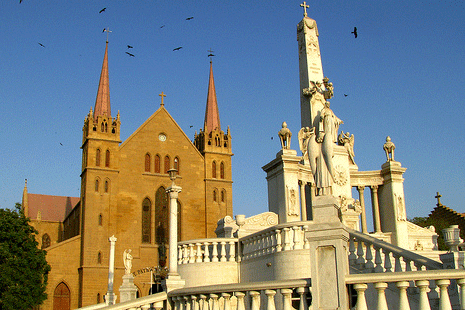The Silence ends
It is a very disappointing state of affairs if one can even suggest the notion that; would Jinnah have been alive, he may very well have sought out a separate state for the religious minorities of Pakistan due to the structural oppression which faces them on a daily basis. This is the degree to which the children of his vision have failed him.
Two recent bomb blasts killed 17 people in Lahore and left 70 further injured. Unfortunately, this is not an all too anomalous event. Christians compose roughly 2% of the Pakistani population and experience a very bad state of affairs. Social maneuverability is very rarely viable for the, largely, impoverished Christian population and discrimination is rife. The responsibility for the attacks fall on the Taliban and this should be condemned. A great deal of literature already exists on the outrageousness of Taliban actions, so I will not dwell on the obvious. However, I do wish to highlight the portion of blame that does fall on the broader spectrum of Pakistani Society that has fostered an environment where Pakistani citizens are treated differently in accordance with their faith.
As Beauvoir said, oppression is war. I believe this is no less than an appropriate description for the conditions that Christians in Pakistan find themselves in. Their daily existence is a war. A war waged against a country whose very foundation was based on protecting the rights of minorities. They have silently suffered for a great deal of time, but their patience is now at an end. The response to the bomb blasts was no longer tacit fear, but riots. This unusual retort, in which 5000 Christians of Lahore partook, got me thinking about my last visit to Karachi.
Every year I visit some family friends in Karachi, who happen to be Christian, and every year I seem to get a bleaker image of their circumstances.
What I learnt of in December, was that a Mosque executive committee had decided to build an extension above my friend’s house and had damaged it structurally to the point it could collapse at any moment. This house dates back to 1908. On that day, I also met a couple of 8 year olds as well who told me they were sometimes picked on at School and made fun of because of their Christianity. This is unacceptable and wrong on all levels.
However, I experienced surprise, not because of all the negatives mentioned above, but because of the way the Christian Community had responded to it. At the time, the community was preparing for and I was lucky enough to be shown around St.Patrick’s Cathedral, the only major place of worship for Christians in Karachi, and one, which is packed out every Sunday.
The spirit they had showed was one where you could not see the fact that almost 100 Christians have been killed in the last year due to their faith. They have really come together and have decked out the inside of the Cathedral as if there was only reason to celebrate. The sense of community was really inspiring and one which I really took to heart.
This filled me with hope. But this was in December.
Upon hearing of the lynching, carried out by the Christian rioters as a reaction to the blasts, the dismal picture I had of the situation got drearier. The rioters set alight 2 suspected militants. Of course this vigilante justice should not be condoned and any unlawful killing is wrong. It would also be prudent to note that the reprisal attacks have been swiftly accompanied by apologies from Christian clergymen across Pakistan. However, it is clear that the minorities in Pakistan have reached a watershed moment. They have suffered enough.
Minority oppression has, unfortunately, been one of the stable motifs that has persevered since partition and is one that does not look any closer to resolution than it did many decades ago. However, as with all injustice there comes a time when change is set in motion.
The anger of the protestors is a manifestation of the frustration that they have felt for many years at successive government’s inactions at their plight. Their silence has ended; it is now time to act. The government must ensure the safety of all its citizens regardless of caste or creed.


